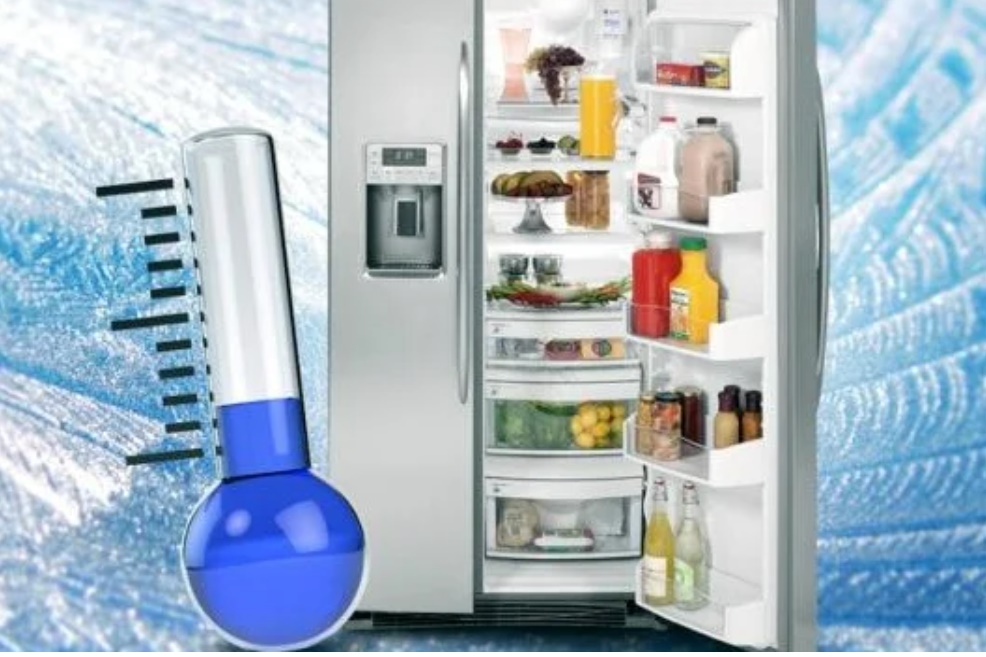1. Choosing an Energy-Efficient Refrigerator
Selecting the right refrigerator is crucial to helping you save energy. With various refrigerator models available in the market today, it’s essential to choose one that suits your needs, enhances quality and efficiency, and optimizes energy conservation. Here are some factors to consider when purchasing a refrigerator:
– Opt for a refrigerator with a capacity that aligns with your requirements. A too-small refrigerator may not suffice, while a larger one can consume more energy;
– Choose a light-colored refrigerator as they absorb less heat compared to darker ones, making them more energy-efficient;
– Carefully review the technical specifications to select a model with superior energy-saving capabilities;
2. Best Practices for Energy Conservation in Refrigerators
Adjust the Temperature
Modify the refrigerator’s temperature according to the weather conditions. Avoid setting it to the highest level as it consumes a lot of energy. During colder months, you can lower the temperature to 3, and increase it to 4 during hotter days for optimal energy conservation.
Minimize Power Cycling and Door Opening
To save energy, refrain from frequently unplugging the refrigerator or turning it on and off. Each time the refrigerator restarts, it uses a significant amount of electricity. If you plan to not use the refrigerator for an extended period, unplug it, but ensure you remove and consume all perishables, clean the refrigerator, and let it air dry before closing the door. It’s also advisable to cover it with a dust cover.

Additionally, minimize the frequency and duration of door openings. When the door is opened, warm air rushes in, causing the temperature inside to rise. As a result, the cooling system works harder and longer, leading to increased energy consumption and potentially shortening the refrigerator’s lifespan.
Avoid Placing Hot Food Inside
Hot food will raise the internal temperature of the refrigerator, forcing it to work harder. Allow hot meals to cool down before storing them.
Don’t Keep the Refrigerator Too Empty
A full refrigerator cools more efficiently than an empty one. If your refrigerator is not well-stocked, consider filling it with bottles of water to maintain efficiency while reducing energy consumption.
Use Glass or Ceramic Containers
Glass or ceramic containers help maintain a stable temperature within the refrigerator, unlike plastic containers. Remember to cover the containers to prevent water condensation.
Maintain Space Between Food Items and the Interior Walls
Avoid direct contact between food items and the interior walls of the refrigerator, as this can cause spoilage and hinder efficient cooling, leading to higher energy usage. Ensure there’s a gap between the food and the walls.
Keep It Away From Heat Sources
Avoid placing the refrigerator near heat-generating appliances like gas stoves, rice cookers, or microwaves, as well as direct sunlight.
Provide Adequate Ventilation
Don’t push the refrigerator directly against the wall. It needs space to dissipate heat and function effectively. This is crucial as the cooling system at the back requires a constant supply of cool air to prevent overheating, which can lead to increased energy consumption and accelerated wear and tear.
Clean the Coils and Rear Area Regularly
The cooling coils and the rear area of the refrigerator should be regularly cleaned and dusted to prevent dust buildup, which can obstruct the cooling system. If you have pets, clean this area more frequently to prevent pet hair accumulation.
According to Khoevadep





































